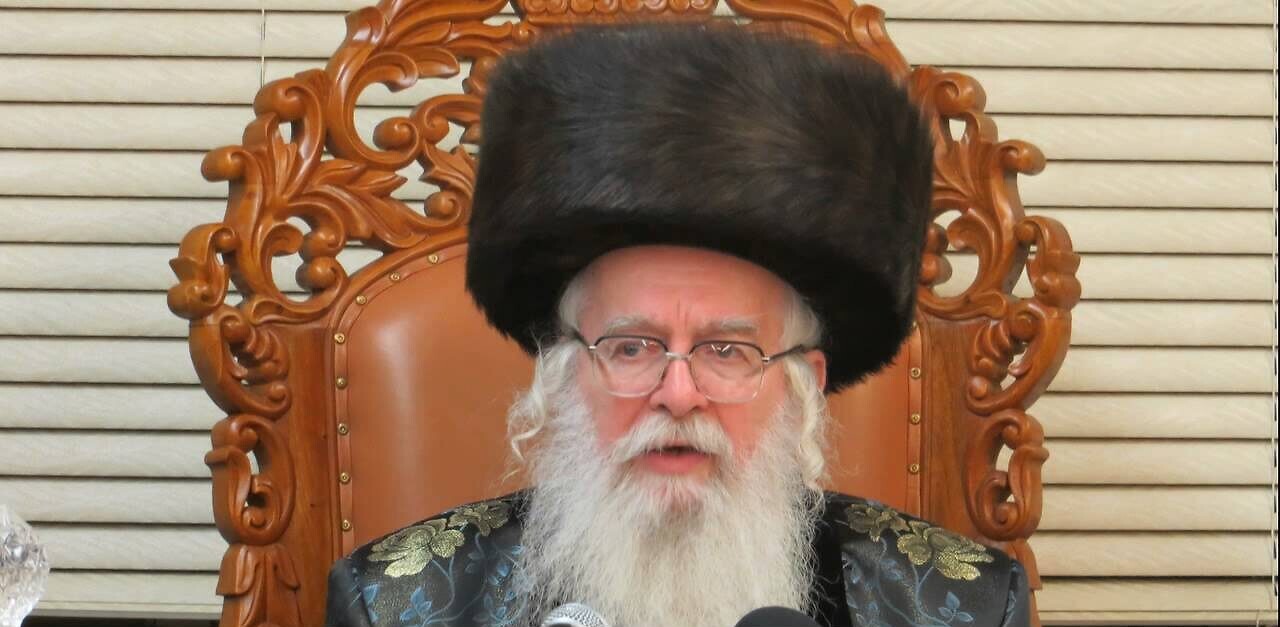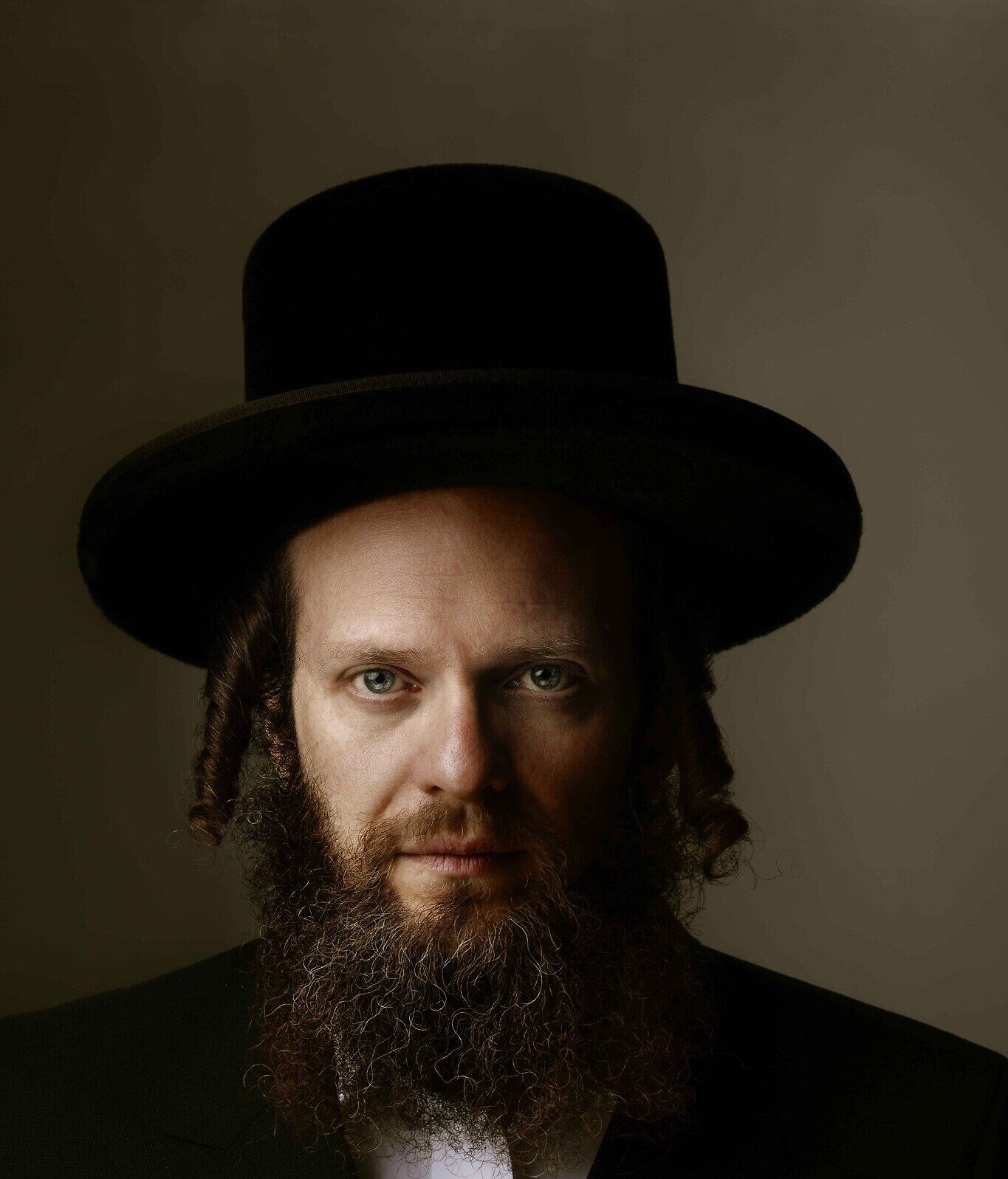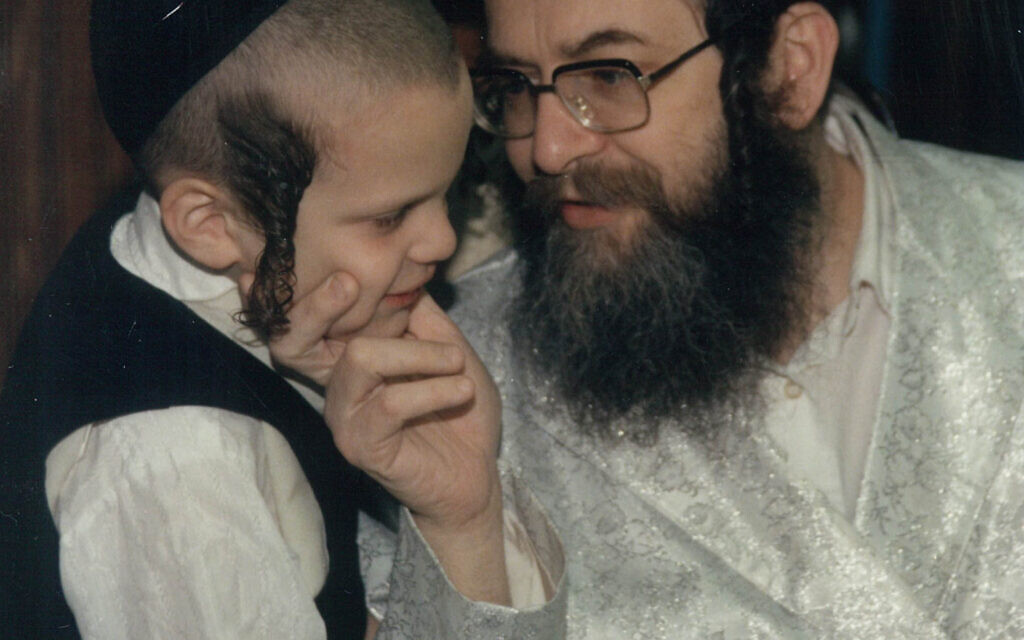The rabbi was universally known as Mohorosh, and witnesses in the film tell Ojalvo’s camera that “he is not dead, how could he be dead? He is a tzaddik” (righteous person).
Last week the BBC aired a film that exposes the systematic abuse of children in the Breslov community. We spoke to its director
Bat-Dor Ojalvo is the director of one of the year’s most important films — In the Name of the Father — screened in the BBC’s prestigious Storyville slot last week. It is the deeply disturbing account of a Breslov Chasidic community, set up in a northern Israeli town, Yavniel. The man who encouraged people to move to Yavniel, Rabbi Eliezer Schik, died in 2015, aged 74. But as the film shows, the rabbi, working from Brooklyn, presided over a massively corrupt culture of sexual abuse of young girls and boys, of illegal under-age marriages, and of physical and emotional violence.
It took Ojalvo and her team seven years of relentless, dedicated research, to make the film. The rabbi was universally known as Mohorosh, and witnesses in the film tell Ojalvo’s camera that “he is not dead, how could he be dead? He is a tzaddik” (righteous person).

But besides Mohorosh’s followers, Ojalvo has secured two key testimonies: from Moishi, the rabbi’s 44-year-old Brooklyn-based son, and from members of the Boloton family, some of whom left Yavniel and now lead secular lives.
Originally there were three films, shown on Israel’s Kan TV, but they were edited down to the Storyville 90- minute slot. And so I learn that Moishi, who is now mounting a legal action to claim a massive financial inheritance from his father, as not an only child, as the BBC programme suggests. He has in fact three sisters, whom Orthodox law does not recognise as claimants; and an older brother, who remains in Brooklyn, where he owns his parents’ building, and who has been described to Ojalvo as “not healthy, mentally” and thus not part of Moishi Schik’s legal initiative.
For Ojalvo, it was “very important to bring all sides to sit in front of the camera”, whether or not they remained devotees of Mohorosh, or were ex-members of the Yavniel community. To conduct many of the interviews, she wore modest, religious clothing, particularly because some of the conversations took part in the community’s synagogue. She slowly gained people’s trust — and because she spent so much time in Yavniel, she thinks that people became comfortable with her, asking after her children, and accepting that she herself is a secular Jew.
Some of the most remarkable footage in the film shows violent attacks against Moishi and also against members of the community perceived to have complained against the “party line” — the strict enforcement of under-age marriages and the casting out of people such as women who wanted a divorce, or a child who reported sexual abuse.
“You see interviews with about 12 people in the film, but in fact we spoke to around 50. Many said they wouldn’t appear on camera, but they gave us access to their computers, and old tapes. We took that material to a special laboratory and it was worked on to show in our film. Some of the people who said they didn’t want to appear on screen nevertheless still helped us, and are still helping. One man told me, ‘You are shouting from my throat’”.
Two central questions: was Mohorosh aware of the sustained level of abuse, and did Ojalvo believe Moishi?
To the first, she has no doubt. “He was totally aware of the sexual abuse. People would write faxes to him in New York and they would ask him anything and everything, from what did a scary dream mean, to whether it was permitted to keep cats. But many of these questions concerned sexual abuse, who was a victim, who was carrying it out, and exactly what was being done”. She is as certain as she can be that the rabbi knew what was taking place — but because of the stricture against being a “moiser” — one who informs or betrays, usually to the outside authorities — Rabbi Schik was able to clamp down on the complainants, often by throwing them out of Yavniel.
In one shocking instance, Ojalvo says, a nine-year-old boy said he had been raped by a neighbour. Mohorosh threw this child out of the community and his mother was forbidden to make contact with him — to which she agreed. What became of the boy? “He became addicted to drugs and ended up living on charity. When it came to having his own children, he couldn’t be a father to them and ended up giving them away. So what we are seeing is generation after generation of shame and misery.”

As for Moishi, Ojalvo admits she was very sceptical at first — but then adds that so was he. Each was wary of the other, and at one point she made him sign an agreement promising not to sue people who spoke disparagingly of him on camera. “I was so scared at the beginning. I wasn’t sure what I would find. One man even said that Moishi had murdered someone; I told Moishi, it’s not your movie, it’s mine. I was very clear and open with him. Everything was on the table.”
She concludes that he was “quite brave” and said things about himself which did not show him in the best light. Moishi’s bitterness is understandable: he says on camera that he himself was sexually abused in his father’s New York yeshiva, that his father knew, and did nothing about it. (Moishi and his wife and children never lived in Yavniel, but the abuse appears to have been part of the culture of the community).
Now, since the screening of In the Name of the Father in Israel, the police, the attorney-general’s office, the Ministry of Education and the Ministry of Social Welfare have become involved in a belated but welcome inquiry into what went wrong in Yavniel. Some members of the Breslov community have told Ojalvo that they are getting involved in workshops, and learning how to create a safe space for their children. She and her film team have given hours of testimony to the police.
But the illegal, under-age marriages are still taking place, often at night where they cannot be tracked. That is an issue which Israeli authorities must deal with, urgently.
https://www.jewishnews.co.uk/the-doc-that-shocked-israel/
In The Name of The Father is available to watch on BBC iPlayer




4 comments:
Here's a horrible thought - guy with a shtreiml and bekishe, in an earlier generation he'd have been remembered as a great tzadik, Artscroll would likely have a hagiography about him, people would quote him in their vorts, etc.
When you look at all the Artscroll and other hagiographies, do you ever wonder - how many of them were monsters like this guy?
If they were teachers, up to 5% at the very least!
And over a decade ago, the New York Times reported, Teacher-Student Sex Said to Be Not Unusual. They quoted a study that found that study up to 5 percent of teachers engage in some form of sexual abuse of students, from inappropriate verbal flirtation to intercourse.
https://floridaactioncommittee.org/likely-sexually-abuse-child-sex-offender-teacher/
Who is more likely to sexually abuse your child? A Sex Offender or their Teacher?
Parents should know that there’s a greater chance of their child getting sexually abused by a teacher or coach than a stranger on the sex offender registry.
One only needs to scan the headlines to see Teachers getting caught having sexual relations with their underage students on a regular basis.
Here are some from just this past week:
North Boone teacher charged with sexual assault of a student | Catholic School Teacher Had Sexual Relationship With Student … | Former Olean High teacher pleads guilty to sexually abusing student | Montague HS teacher jailed, accused of sex with student | KSP: Teacher Had Sexual Relationship | Silverado High School volunteer volleyball coach arrested for sexual … | Teacher Accused of Sex With Student Is Pregnant: Cops | Report details sexual abuse at The Pingry School | Recently married teacher ‘raped 13-year-old pupil and sent nude … | Former GBHS coach pleads ‘no contest’ on sex charge | More former Edmund Rice teachers charged over historic child sex … | Ex-band director investigated for sending inappropriate texts
Last year, CBS News put out a story on the subject; “Texas on record-setting pace for inappropriate teacher-student relationships“, stating, Texas “had 188 investigations last fiscal year, marking at least the fifth year of growth in a row.”
A few years before, Slate.com asked How Many Kids are Sexually Abused by Their Teachers? Probably Millions. They estimated that, “4.5 million students currently in grades K-12 have suffered some form of sexual abuse by an educator, and more than 3 million have experienced sexual touching or assault.”
And over a decade ago, the New York Times reported, Teacher-Student Sex Said to Be Not Unusual. They quoted a study that found that study up to 5 percent of teachers engage in some form of sexual abuse of students, from inappropriate verbal flirtation to intercourse.
According to the National Center for Education Statistics. there are approximately 3.1 million public school teachers and 0.4 million private school teachers in the US. There are fewer than 1/4 as many registered sex offenders in the US.
Statistically, your child has a much higher chance of being sexually abused by their teacher than a registered sex offender and is 18 times more likely to be sexually abused by a family member or close acquaintance than someone on the registry.
לֹֽא־יָקוּם֩ עֵ֨ד אֶחָ֜ד בְּאִ֗ישׁ לְכׇל־עָוֺן֙ וּלְכׇל־חַטָּ֔את בְּכׇל־חֵ֖טְא אֲשֶׁ֣ר יֶֽחֱטָ֑א עַל־פִּ֣י ׀ שְׁנֵ֣י
עֵדִ֗ים א֛וֹ עַל־פִּ֥י שְׁלֹשָֽׁה־עֵדִ֖ים יָק֥וּם דָּבָֽר׃
עַל־פִּ֣י ׀ שְׁנַ֣יִם עֵדִ֗ים א֛וֹ שְׁלֹשָׁ֥ה עֵדִ֖ים יוּמַ֣ת הַמֵּ֑ת לֹ֣א יוּמַ֔ת עַל־פִּ֖י עֵ֥ד אֶחָֽד׃ יַ֣ד הָעֵדִ֞ים תִּֽהְיֶה־בּ֤וֹ בָרִאשֹׁנָה֙ לַהֲמִית֔וֹ וְיַ֥ד כׇּל־הָעָ֖ם בָּאַחֲרֹנָ֑ה וּבִֽעַרְתָּ֥ הָרָ֖ע מִקִּרְבֶּֽךָ׃
מַתְנִי׳ אֵלּוּ הֵן הַפְּסוּלִין: הַמְשַׂחֵק בְּקוּבְיָא, וּמַלְוֵי בְּרִבִּית, וּמַפְרִיחֵי יוֹנִים, וְסוֹחֲרֵי שְׁבִיעִית, וַעֲבָדִים. זֶה הַכְּלָל: כׇּל עֵדוּת שֶׁאֵין הָאִשָּׁה כְּשֵׁירָה לָהּ, אַף הֵן אֵינָן כְּשֵׁירִין לָהּ.
עֲשָׂרָה מִינֵי פַּסְלוּת הֵם כָּל מִי שֶׁנִּמְצָא בּוֹ אֶחָד מֵהֶן הֲרֵי הוּא פָּסוּל לְעֵדוּת. וְאֵלּוּ הֵן. הַנָּשִׁים. וְהָעֲבָדִים. וְהַקְּטַנִּים. וְהַשּׁוֹטִים. וְהַחֵרְשִׁים. וְהַסּוּמִים. וְהָרְשָׁעִים. וְהַבְּזוּיִין. וְהַקְּרוֹבִין. וְהַנּוֹגְעִין בְּעֵדוּתָן. הֲרֵי אֵלּוּ עֲשָׂרָה:
There are ten categories of disqualifications. Any person belonging to one of them is not acceptable as a witness. They are:
a) women;
b) servants;
c) minors;
d) mentally or emotionally unstable individuals;
e) deaf-mutes;
f) the blind;
g) the wicked; h) debased individuals;
i) relatives;
j) people who have a vested interest in the matter; a total of ten.
https://religionnews.com/2023/05/26/catholic-church-in-california-grapples-with-more-than-3000-lawsuits-alleging-child-sex-abuse/
A 2020 report by Child USA found the average age at the time of reporting child sex abuse to be about 52 years. “The average age of abuse is somewhere in the 11- to 14-year-old range, so it’s a 40-year lag,” McNevin said.
Post a Comment